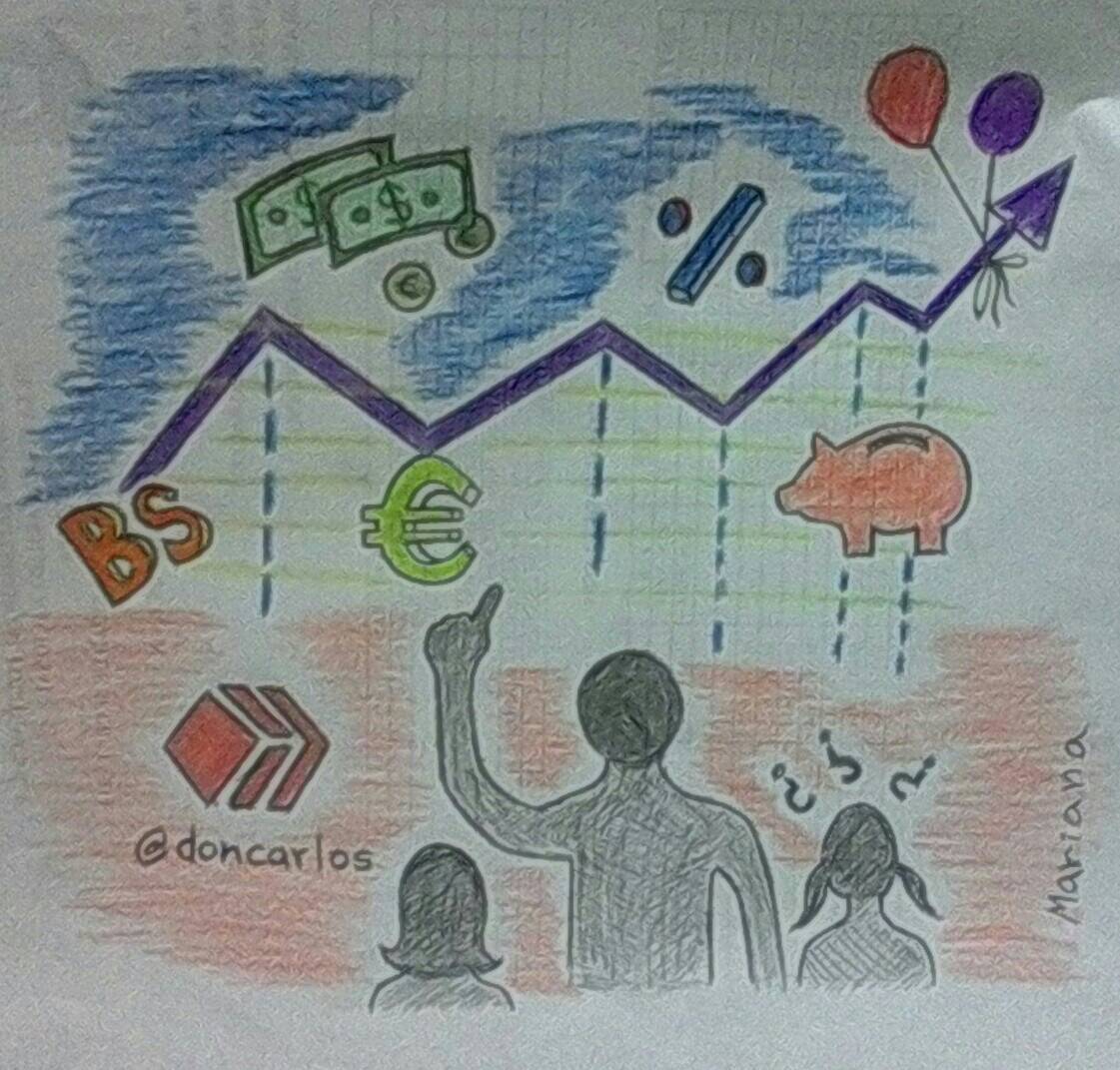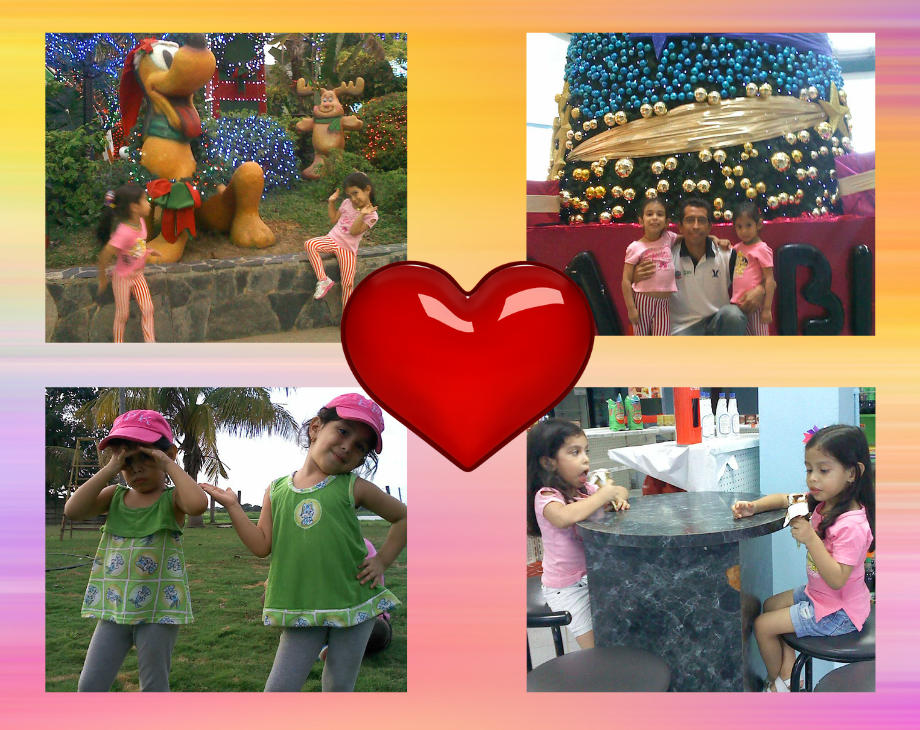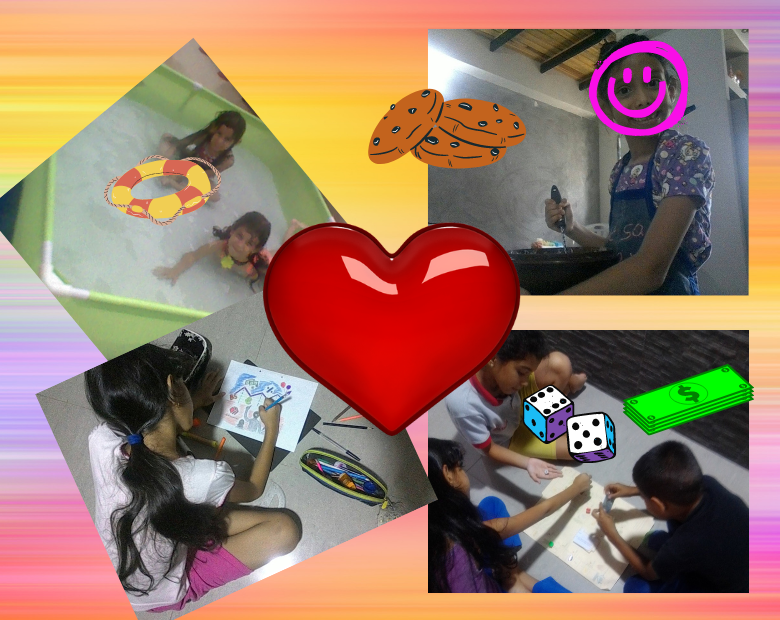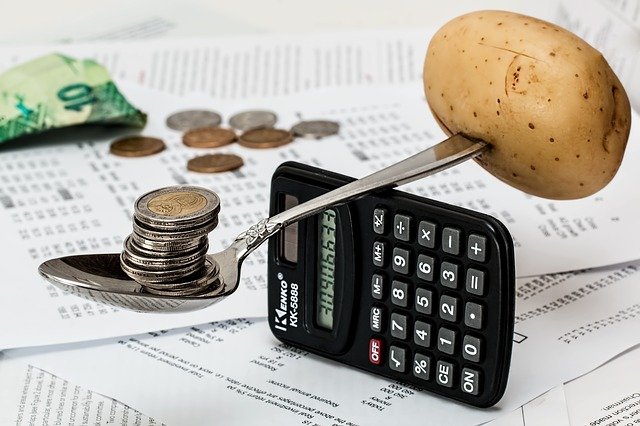
Saludos. En esta oportunidad he considerado escribir sobre las estrategias que juntamente a mi esposa hemos implementado durante los cinco últimos años recientes (2017- 2021) para garantizar una educación financiera básica a nuestras dos hijas de 9 y 11 años. No voy a dar consejos de experto sobre pasos infalibles, voy a compartirles nuestra particular experiencia familiar dentro del contexto económico y social venezolano, así como los resultados que estamos logrando con nuestro propio método basado principalmente sobre la aplicación del sentido común .
El texto comienza con una corta descripción del nivel de educación financiera que tuvimos tanto mi esposa como yo, seguido de un breve repaso del estilo de vida que pudimos permitirnos para nuestras hijas en sus primeros años, y el cambio de nuestra realidad financiera en el contexto económico de mi país (Venezuela) durante los últimos cinco años, y especialmente vamos a detallar las principales estrategias que hemos venido implementando como padres para asegurarnos que ellas reciban educación financiera básica y necesaria, revelando los resultados que estamos obteniendo por ahora.
Procedemos de familias con bajos ingresos, ninguno de nuestros padres pudo ir a la universidad, y trabajaron en el sector informal y público. Por su parte los padres de mi esposa han sido muy esforzados, y pudieron dar educación universitaria a ella y dos de sus hermanas, y también promovieron en ellos la disciplina del ahorro y el consumo controlado. Por mi parte, mis padres nunca se aseguraron en darme ningún tipo de educación financiera, lo poco que hoy conozco sobre el tema lo obtuve con lecciones de vida y algo de sentido común.
Nuestras dos hijas encajan en un tipo de personalidad promedio, durante sus primeros cinco y seis años, sin incurrir en derroche tuvimos la capacidad financiera para llevarlas en viajes de vacaciones en dos temporadas por año, sus dietas fueron variadas y siempre oportunas, y las golosinas y pasteles siempre estaban disponibles. También acudían regularmente a los parques infantiles y lugares de recreo, es decir, conseguimos hacer viable su estilo de vida, pero no garantizamos la sostenibilidad.

Vivimos en Venezuela, muchos ya conocen algo sobre la condición social y económica en este país acentuada durante los últimos cinco años recientes. Para muchos hogares ha significado un impacto negativo en sus finanzas, y una necesaria adaptación a situaciones difíciles, cambios en los estilos de vida y patrones de consumo. Nuestra familia particularmente, también sintió las consecuencias y nos vimos en la obligación consciente de reaccionar y aprender a vivir en una nueva realidad, no ha sido sencillo para mis hijas.
Cuando empezamos a sentir la caída de los ingresos familiares, de forma obligada nuestros estilos de vida sufrieron un revés y rectificamos los patrones de consumo y costumbres sociales. Fue en este punto cuando diseñamos nuestra propia estrategia para reinventar la rueda, no seguimos consejos de libros, no repetimos experiencias de terceros, pero retomamos el sentido común necesario, cambiamos la táctica sin perder el rumbo y decidimos empezar por garantizar a nuestras hijas una mínima formación financiera útil para la vida.

¿Cuál es nuestra fórmula exitosa para educarlas financieramente?
Lo primero que hicimos fue hablar con términos muy sencillos a nuestras hijas sobre los cambios que ellas ya habían notado, por sus edades pensamos que entendían poco o nada, pero en cada conversación su entendimiento sobre el tema fue creciendo.
En segundo lugar, les dimos plena participación en la elaboración parcial de la lista de la cesta de alimentos, aquí empezaron a decidir y priorizar lo que era importante y urgente, nos aseguramos de que añadieran una parte de la lista, especialmente aquellos productos que necesitaban llevar a sus escuelas.

Tercero; Sustituimos los viajes largos de vacaciones por actividades recreativas locales, incluso por más actividades lúdicas en casa; juegos de mesa, con pelotas, armar la piscina una vez por semana, caminar hacia la plaza de nuestro pueblo para ejercitarnos. El abuelo tiene una casa en el campo (finca pequeña) la cual comenzamos a visitar para disfrutar de la naturaleza, es decir le dimos valor al resto de las opciones que siempre estuvieron disponibles más cerca y que implican menos costos.
Cuarto; a la hora de acudir a la tienda de víveres, entre varias opciones mamá muestra cómo se escogen en función de sus precios, presentación y marca. Les permitimos seleccionar dos o tres productos, y hacemos que nos expliquen sus motivos por dicha selección. Aquí la parte difícil es lograr que ellas ignoren las galletas y los cereales.
Quinto; Comenzamos a realizar galletas y pasteles en casa, ellas hacen la mayor parte del trabajo, aprendimos las técnicas para elaborar helados caseros, siempre bajo supervisión.

En sexto lugar, promovimos el consumo de una fruta tropical (el mango) que abunda durante una temporada del año, y que está disponible de forma gratuita en nuestra comunidad. Con esta fruta triplicamos el consumo de zumos naturales, y fue el mejor sustituto de los aperitivos.
Séptimo; Diseñamos un juego de mesa algo similar al famoso Monopoly, pero con una dinámica más superficial, incorporando variables y conceptos más comunes a las niñas. La intención de esta versión del juego es sembrar la lógica económica cotidiana y el sentido común en el manejo de las finanzas.
Octavo; Recuperamos sus piezas de ropa en desuso, y mis hijas se divertían haciendo modificaciones con pequeños detalles siguiendo tutoriales en youtube, esto fue genial, así recuperaron ropa obsoleta que ahora usan para sus días en casa ahorrando algo de dinero.

Noveno; incrementamos el uso del transporte público, lo convertimos en una actividad divertida de paseo. La falta de combustible para el vehículo familiar nos obligó a enseñarles a las niñas otros modos de transporte alternativos de bajo costo.
Así otras actividades creativas que hemos puesto en práctica con intención de promover en ellas un poco de educación financiera básica necesaria. Han sido actividades comunes con la diferencia que son aplicadas con fines didácticos.

Esta estrategia diseñada a medida ha comenzado a generar sus frutos, creemos que nuestras hijas lograron dar un giro a sus estilos de vida, se adaptan con rapidez. Ambas han entendido las distintas razones por las cuales nuestras finanzas se cuidan, están aprendiendo a conservar y ahorrar recursos, a consumir lo necesario, y disfrutan de vacaciones haciendo turismo interno.
En conclusión, esto ha sido nuestra particular experiencia familiar en un contexto espacio temporal, así describimos nuestra formula exitosa en el cual aprendimos, desaprendimos y reaprendimos, y según nosotros lo estamos logrando a nuestra manera y ritmo particular, seguro muchas familias también podrían lograr avances efectivos en este esfuerzo de garantizar un poco de formación financiera para la vida de sus hijos tan solo con algo de sentido común.

¡Gracias por leer! Pronto estaré compartiendo aquí otro tema especial de interés.
Fuentes de imágenes:
La imagen de portada corresponde a un dibujo original realizado por mi hija menor utilizando hoja blanca, crayón y lápiz de grafito.
La primera imagen tipo collage ha sido compuesta utilizando la herramienta de diseño gráfico en línea Canva, a partir de fotos propias descargadas desde nuestra cuenta en Dropbox. No autorizo el uso de las imágenes fuera de la composición. Podrán ver este diseño si gustan a través del siguiente enlace.
La segunda imagen tipo collage ha sido compuesta utilizando la herramienta de diseño gráfico en línea Canva, a partir de fotos propias almacenadas en la galería de fotos de nuestra tablet, y de algunos elementos gráficos disponibles de manera gratuita en el mismo Canva. No autorizo el uso de las imágenes fuera de la composición. Podrán ver este diseño si gustan a través del siguiente enlace.
La tercera y última imagen ha sido tomada de Steve Buisssinne en Pixabay: https://pixabay.com/es/photos/monedas-calculadora-presupuesto-1015125/
La traducción fue hecha utilizando el servicio de traducción automática en línea DeepL.
El separador es de diseño propio utilizando la herramienta paint.
Podrán encontrarme en:
ENGLISH TRANSLATION:

Successful formula for financially educating my daughters.
Greetings. In this opportunity I have considered writing about the strategies that together with my wife we have implemented during the last five recent years (2017- 2021) to guarantee a basic financial education to our two daughters aged 9 and 11 years old. I am not going to give expert advice on infallible steps, I am going to share with you our particular family experience within the Venezuelan economic and social context, as well as the results we are achieving with our own method based mainly on the application of common sense.
The text begins with a short description of the level of financial education that both my wife and I had, followed by a brief review of the lifestyle we were able to afford for our daughters in their early years, and the change in our financial reality in the economic context of my country (Venezuela) during the last five years, and especially we are going to detail the main strategies we have been implementing as parents to ensure that they receive basic and necessary financial education, revealing the results we are getting so far.
Both my wife and I come from low-income families, neither of our parents were able to go to college, and they worked in the informal and public sector. For their part, my wife's parents have been very hard-working, and were able to give her and two of her sisters a college education, and they also fostered in them the discipline of saving and controlled consumption. As for me, my parents never made sure to give me any kind of financial education, what little I know today on the subject I got from life lessons and a bit of common sense.
Our two daughters fit an average personality type, during their first five and six years, without incurring waste we had the financial ability to take them on vacation trips in two seasons per year, their diets were varied and always timely, and treats and cakes were always available. They also attended playgrounds and recreational places on a regular basis, in other words; we were able to make their lifestyles viable, but we did not guarantee sustaina.

We live in Venezuela, many already know something about the social and economic conditions in this country accentuated during the last five recent years. For many households it has meant a negative impact on their finances, and a necessary adaptation to difficult situations, changes in lifestyles and consumption patterns. Our family, in particular, also felt the consequences and we found ourselves in the conscious obligation to react and learn to live in a new reality, it has not been easy for my daughters.
When we began to feel the downturn in family income, our lifestyles were forced to suffer a setback and we rectified our consumption patterns and social customs. It was at this point that we devised our own strategy to reinvent the wheel, we did not follow the advice of books, we did not repeat the experiences of others, but we took the necessary common sense, changed tactics without losing our way and decided to start by guaranteeing our daughters a minimum of useful financial education.

What is our successful formula for educating them financially?
The first thing we did was to talk in very simple terms to our daughters about the changes they had already noticed, because of their ages we thought they understood little or nothing, but with each conversation their understanding of the subject grew.
Secondly, we gave them full participation in the partial elaboration of the food basket shopping list, here they started to decide and prioritize what was important and urgent, we made sure they added a part of the list, especially those products they needed to take to their schools.
Third; We replaced long vacation trips with local recreational activities, including more playful activities at home; board games, ball games, setting up the pool once a week, walking to our town square to exercise.
Grandfather has a house in the countryside (small farm) which we started to visit to enjoy nature, that is to say we gave value to the rest of the options that were always available closer and that imply less costs.

Fourth, when they go to the grocery store, Mom shows them how to choose among several options based on price, presentation and brand. We allow them to select two or three products, and have them explain their reasons for their selection. The hard part here is getting them to ignore the crackers and cereals.
Fifth; We started making cookies and cakes at home, they do most of the work, we learned the techniques to make homemade ice cream, always under supervision.

Sixth, we promoted the consumption of a tropical fruit (mango) that is abundant during one season of the year, and is available for free in our community. With this fruit we tripled the consumption of natural juices, and it was the best substitute for snacks.
Seventh; We designed a board game somewhat similar to the famous Monopoly, but with a more superficial dynamic, incorporating variables and concepts more common to girls. The intention of this version of the game is to sow everyday economic logic and common sense in the management of finances.
Eighth; We recovered their unused pieces of clothing, and my daughters had fun making modifications with small details following tutorials on youtube, this was great, this way they recovered obsolete clothes that they now use for their days at home saving some money.
Ninth; we increased the use of public transportation, making it a fun activity to ride. Lack of fuel for the family vehicle forced us to teach the girls about alternative, low-cost modes of transportation.

We have also implemented other creative activities with the intention of promoting some of the necessary basic financial education. They have been common activities with the difference that they are applied for didactic purposes.
This strategy has begun to bear fruit; we believe that our daughters have managed to turn their lifestyle around and are adapting quickly. They have both understood the different reasons why we need to take care of our finances, they are learning to conserve and save resources, to consume what is necessary, to enjoy their vacations doing domestic tourism.
In conclusion; this has been our particular family experience in a space-time context, this is how we describe our successful formula in which we learned, unlearned and relearned, and according to us we are achieving it in our particular way and pace, surely many families could also achieve effective progress in this effort to ensure some financial training for the lives of their children just with some common sense.

Thanks for reading! I will be sharing another special topic of interest here soon.
Image sources:
The cover image is an original drawing made by my youngest daughter using white paper, crayon and graphite pencil.
The first collage-like image has been composed using the online graphic design tool Canva, from our own photos downloaded from our Dropbox account. You will be able to see this design if you like through the following read-only link. I do not authorize the use of the images outside of the graphic composition.
The second collage-like image has been composed using the online graphic design tool Canva, from our own photos stored in our board's photo gallery. You will be able to see this design if you like through the following read-only link. I do not authorize the use of the images outside of the graphic composition.
The third and last image is taken from Steve Buisssinne on Pixabay: https://pixabay.com/es/photos/monedas-calculadora-presupuesto-1015125/
The translation was done using the online machine translation service DeepL.
The separator is self-designed using the paint tool.
You can find me at:
@cmesapure

Congratulations @doncarlos! You have completed the following achievement on the Hive blockchain and have been rewarded with new badge(s):
Your next payout target is 50 HP.
The unit is Hive Power equivalent because post and comment rewards can be split into HP and HBD
You can view your badges on your board and compare yourself to others in the Ranking
If you no longer want to receive notifications, reply to this comment with the word
STOPTo support your work, I also upvoted your post!
Check out the last post from @hivebuzz:
Support the HiveBuzz project. Vote for our proposal!
Mi apreciado @doncarlos, que bueno es leer su experiencia de vida respecto a la reinvención de la forma de usas sus ingresos y cómo lo enseñan a sus hijas.
Lo único que me gustaría acotar es que, los libros (opiniones de terceros) acerca de educación financiera, de ninguna manera imponen reglas a seguir, sino la forma como cada autor logró aplicar en su vida esos principios financieros y tuvieron los resultados que señalan en sus libros. Como seres raciones, el sentido común (ensayo y error) nos regula en primer plano, sin embargo, contar con la experiencia práctica plasmada en un libro, acelera impresionantemente los resultados que queremos alcanzar.
No es lo mismo hacer malabares con lo que tenemos a aprender a ahorrar e invertir parte de nuestros ingresos (y de esto estoy seguro que tendrás una cátedra) y en este sentido, la educación financiera desde la experiencia ajena nos ayuda a aprovechar mucho mejor las oportunidades que se presentan ante nuestros ojos, o mejor aún, a poderlas identificar.
Imagino que sí estás en Hive, te gusta leer, y si te gusta leer, te gustan los libros; Así que me gustaría recomendarte la lectura de uno (en mi opinión excelente) que a mí me ayudó a entender un poco más acerca de la constancia de mantener los principios financieros y no dejarnos hechizar por un fajo de billetes que nos invita a gastarlo en algo que puede ser de necesidad.
El hombre más rico de Babilonia de George Clason es un libro que seguramente su escrito, narrado en forma de historia, los atrapará, y más aún si lo leen en familia.
No te arrepentirás si lo lees.
En cuanto a tu recomendación de lectura, ya he escuchado muy buenas referencias sobre ese libro El hombre más rico de Babilonia, así que veré si lo consigo finalmente para disfrutarlo. Muchas gracias de nuevo estimado.Gracias @oneray, tienes razón en todo lo que escribes, apoyo cada palabra y oración. Es por eso mismo que mi esposa y yo pudimos reinventar la rueda con eso y nos está dando resultado nuestra propia fórmula.
Amigo excelente post , sobre todo para los padres en estos tiempos difíciles!
Es genial hacerle entender a los niños de maneras divertidas que los tiempos cambian!